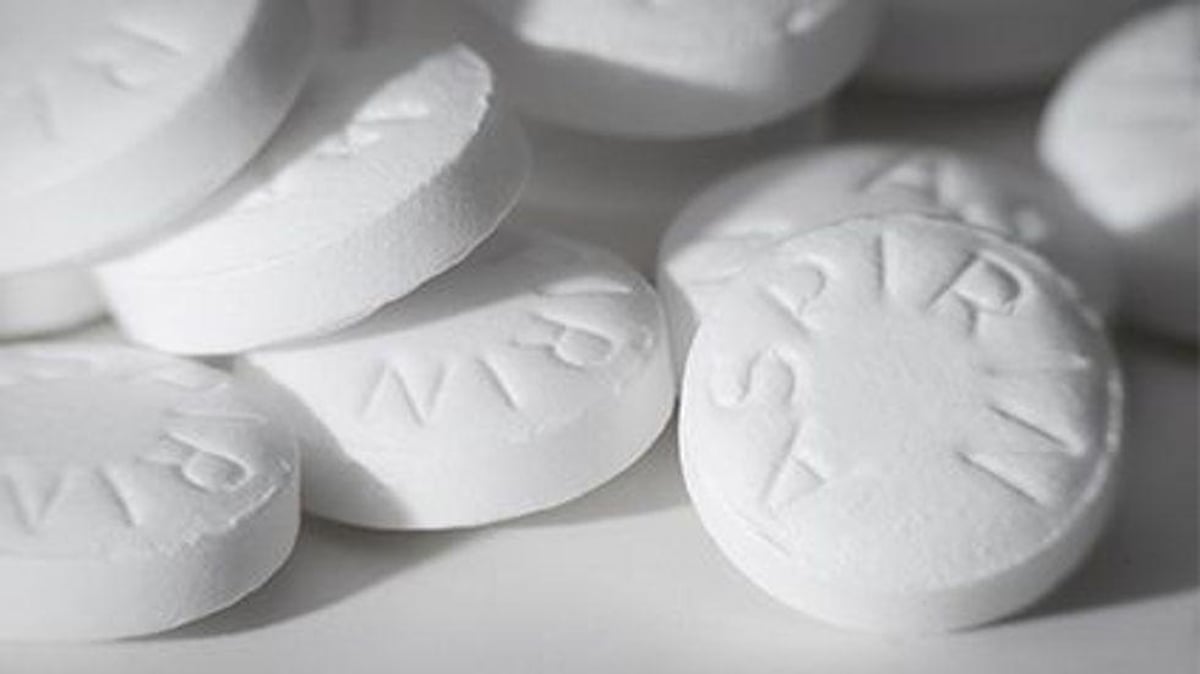Low-Dose Aspirin Won’t Affect Dementia Risk in People With Diabetes

FRIDAY, Nov. 16, 2021 (HealthDay News) -- Low-dose aspirin neither reduces nor increases the risk of dementia in adults with type 2 diabetes, a new study finds.
"This is reassuring that an increase in the risk of dementia is unlikely for the millions of people worldwide who regularly take aspirin to protect against the risk of heart attack and stroke," according to study author Jane Armitage, of the University of Oxford in England.
"The results mean a modest benefit of daily low-dose aspirin on risk of dementia is possible. However, we need studies with more people developing dementia to be sure," added Armitage, a professor of clinical trials and epidemiology.
The study, which was presented Monday at the American Heart Association's virtual annual meeting, included more than 15,000 participants in the United Kingdom who had type 2 diabetes. They had no history of dementia, heart attack or stroke at the start of the study.
Half took one 100-milligram aspirin, and half took an identical placebo pill daily. They were followed for nearly nine years, with an average of about seven years of treatment and almost two additional years of follow-up.
During that time, more than 1,100 participants developed broad dementia, which includes dementia, cognitive impairment or delirium or confusion, according to the study.
"The results show no clear effect of daily low-dose aspirin on the risk of dementia, with a non-significant 9% proportional reduction in risk. However, the uncertainty around this 9% benefit ranged from a 19% reduction in dementia risk to a 2% increase," Armitage said in a heart association news release.
The study authors did find that serious vascular events, such as a heart attack or major bleeding episodes like a stroke, were associated with dementia. Participants who had a major vascular event were nearly 2.5 times more likely to develop dementia, memory loss, confusion or mental decline as those who did not have a major vascular event.
Participants who had a major bleed were twice as likely to develop dementia, memory loss, confusion or mental decline as those who did not have a bleed.
"The overall effect of aspirin on dementia and cognitive impairment was uncertain," Armitage said. "Aspirin may be protective for dementia by preventing some strokes due to blockages, or it may increase the risk because of bleeding into the brain."
The researchers plan to follow the study participants for several more years.
Studies presented at meetings are usually considered preliminary until published in a peer-reviewed medical journal.
More information
The U.S. National Library of Medicine has more on aspirin and heart disease.
SOURCE: American Heart Association, news release, Nov. 15, 2021
Related Posts
AI Tool Similar to Radiologists for Interpreting Chest Radiographs
TUESDAY, Oct. 10, 2023 (HealthDay News) -- An artificial intelligence (AI) tool...
Una mujer se cura del VIH tras un trasplante de sangre de cordón umbilical
MIÉRCOLES, 16 de febrero de 2022 (HealthDay News) -- Una mujer con VIH que...
Chemicals in Hair, Beauty Products May Interfere With Hormones During Pregnancy
FRIDAY, Dec. 17, 2021 (HealthDay News) -- Pregnant women who use hair dyes or...
Greater Variety of Dietary Protein May Lower Risk for HTN
THURSDAY, March 10, 2022 (HealthDay News) -- Consumption of protein at...
